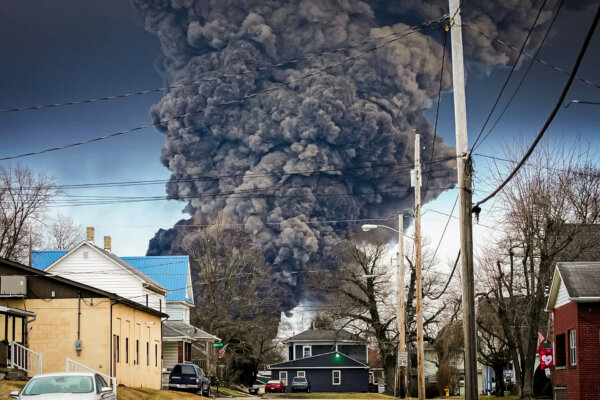
Following a train wreck in East Palestine, Ohio, last year, a toxic chemical known as vinyl chloride has been involved in nearly 1,000 incidents since 2010, according to reports.
A recent report published by Earthjustice and Beyond Plastics on March 26 highlights the frequency of accidents involving vinyl chloride over the past 14 years, prompting calls for the Environmental Protection Agency (EPA) to consider banning the chemical.
Since 2010, there have been at least 966 chemical incident reports related to vinyl chloride, with 930 of them occurring at facilities that produce vinyl chloride or PVC plastics. The remaining incidents took place in various locations such as railroads, ports, roads, waste management facilities, and specialty chemical manufacturing plants.
Notably, there have been 29 incidents since 1968 where rail cars carrying vinyl chloride derailed, resulting in large-scale evacuations in nearby communities.
The report also highlights the dangers associated with vinyl chloride, citing instances where releases of the chemical have led to fatalities and injuries at manufacturing plants.
Industry Stance
Despite the risks associated with vinyl chloride, industry advocates argue that accidents involving the chemical are rare. The Vinyl Institute, representing manufacturers of vinyl and vinyl chloride, asserts that vinyl chloride plays a crucial role in enabling various modern technologies.
On the other hand, environmental groups and activists continue to push for a ban on vinyl chloride due to its hazardous nature and potential health risks associated with exposure to the chemical.
Transportation Risks
The dangers of transporting vinyl chloride were underscored by a train derailment incident in East Palestine last year, where hazardous chemicals, including vinyl chloride, were released into the environment. This incident raised concerns about the safety of transporting toxic chemicals through populated areas.
As the EPA conducts a review of vinyl chloride under the Toxic Substances Control Act (TSCA), public input is crucial in determining the fate of this highly controversial chemical. The EPA is expected to make a final decision on the designation of vinyl chloride by the end of the year.






